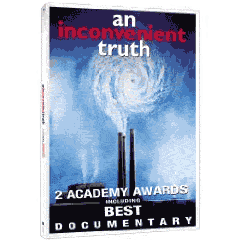Solving the climate commons
 So if the atmosphere is a commons where CO2 is being dumped, resulting in the tragedy of heating up the planet, what can we do about it?
So if the atmosphere is a commons where CO2 is being dumped, resulting in the tragedy of heating up the planet, what can we do about it?
First, we can issue calls to conscience. Public Service announcements on buses that say "I will turn stuff off more." Grade school assemblies about the importance of recycling. Even feature-length, award-winning documentaries on inconvenient truths. All of this is good as far as it goes -- and in particular, it can make people aware of the problem so that they will be more willing to support a stronger solution. In and of itself, though, it is not likely to solve the problem.
We can also resort to coercion. For example, under the Clean Air Act, the emissions of toxic air pollutants are regulated, and polluting companies are required to use the most modern technologies to reduce pollutants, or else pay hefty fines.
Coercion might work pretty well for the major offenders -- coal plants, big businesses, and so on. But trying to write and, especially, enforce laws on hundreds of millions of private citizens is daunting.
So what about privatization? After all, its pretty hard to divide up the air and assign ownership, so it seems like a non-starter. But where there's a will, there is sometimes a way, and it turns out there are some creative ways of doing this. We'll talk about 2 in particular:
- Cap and trade
- Carbon tax
Copyright University of Maryland, 2007
You may link to this site for educational purposes.
Please do not copy without permission
requests/questions/feedback email: mathbench@umd.edu